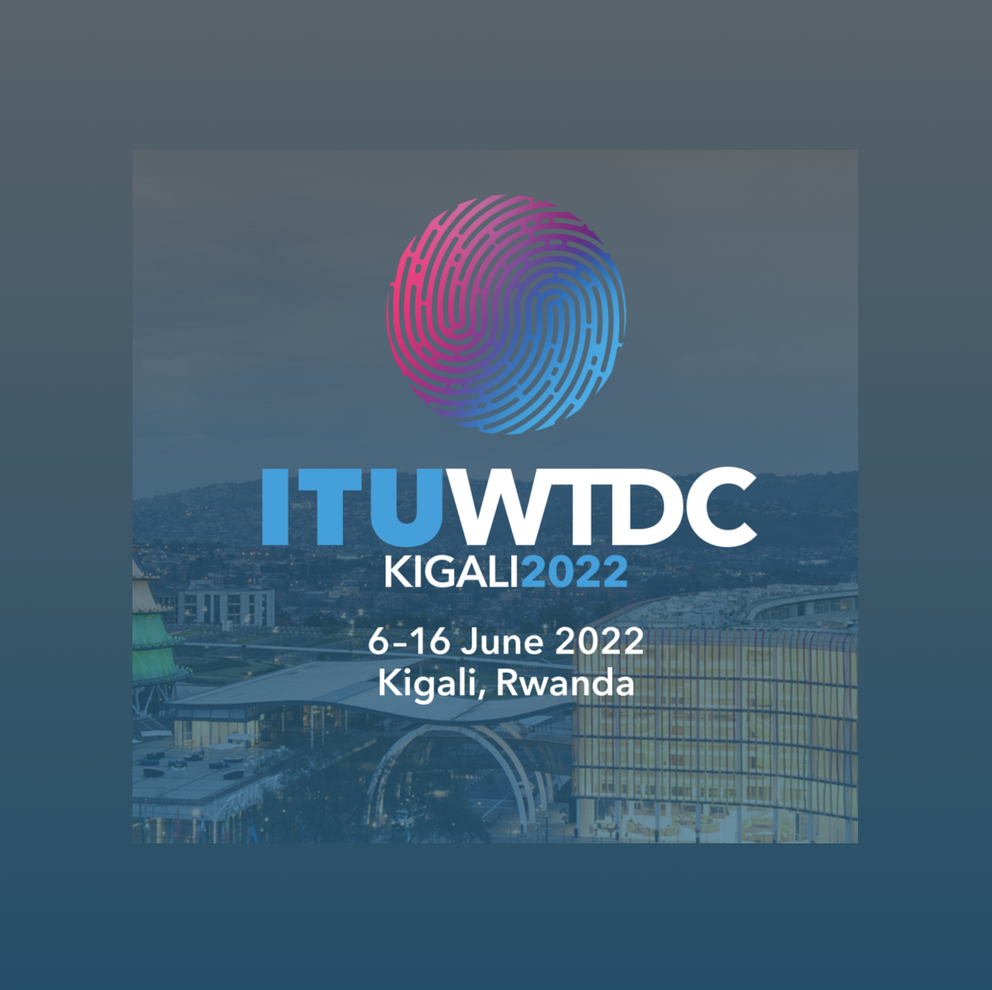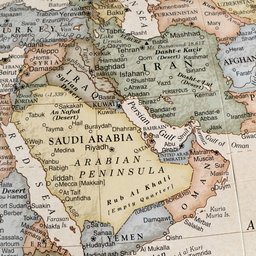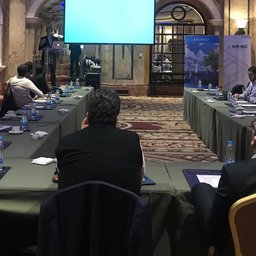We stand at a crossroads between a fragmented geopolitical world and a digital one that is more inclusive and sustainable. A common agenda with agreed priorities on public policy issues for the use of technology and connectivity will help take us in the right direction.
As a member of the ITU Telecommunication Development Sector (ITU-D), the RIPE NCC participates in the World Telecommunication Development Conference (WTDC) every four years. We engage with participants and member states to advance priorities on addressing Internet-related issues in line with our vision and mission.
WTDC-22 took place from 6 - 16 June in Kigali on the theme of "Connecting the Unconnected to Achieve Sustainable Development”. The goal was to set the development agenda and priorities for the ITU-D from 2022 to 2025. More than 2,000 delegates from 150 Member States plus over 350 sector members participated, 45 resolutions were updated, and four new resolutions were approved.
WTDC-22: The new geopolitical battleground
As it stands, the lack of international cooperation and the geo-politicisation of technology standards seem to contribute to further fragmentation of the global digital ecosystem and side-line problems that developing countries need to solve.
At the WTDC-22 opening plenary, a discourse arose regarding the Russian-Ukraine war. The Ukraine delegation, supported by other member states, objected to the nomination of four Russian candidates to any position on the WTDC-22 Committees due to Russia’s actions in Ukraine.
After exhaustive discussion, the heads of the delegations could not reach an agreement on whether the four nominees from Russia should be considered for leadership positions. All candidates for leadership positions were approved except for the Russian candidates. Two days before the close of WTDC-22, during the fifth plenary meeting, a secret ballot to resolve the issue resulted in not accepting the Russian appointments. This practice has become common after similar objections arose at previous WTSA events and ITU Council meetings that took place earlier this year.
IPV6+, not technology nor a standard?
One contested issue was the amendment to resolution 63: “IP addresses allocation and facilitating the transition to IPv6 deployment in developing countries”.
China submitted a proposal to amend resolution 63 to include an explicit reference to IPV6+ as a technology and commercial innovation trend in the "recognising" section and to add IPv6+ to the description of IPv6 to reflect the technology trend in the "resolves", "instructs the Director of the Telecommunication Development Bureau" and "invites the Member States" sections.
Many member states and sector members, including the RIPE NCC and other RIRs, ICANN and ISOC, all opposed this proposal based on the fact that IPv6+ is not a standard developed by the IETF, where technical standards should be developed, and that it is not even clearly defined and could impact the IPv6 deployment progress worldwide.
In the end, the Chinese proposal was not accepted. Some excellent team efforts from colleagues from ARIN, AFRINIC, and ISOC are to be highlighted. Thanks to all! Our involvement and joint efforts have paid off, which is a great result.
Other Contested Resolutions
During WTDC conferences, unresolved issues are forwarded to the Plenipotentiary. We expect that cybersecurity and efforts to bridge digital gaps, among other topics, will be among those brought to the Plenipotentiary-22, which will take place this year starting in September in Bucharest, Romania.
Member states continue to disagree sharply on cybersecurity. Resolution 45 on Cybersecurity had two ad hoc groups and a lot of informal discussions. Several proposals referencing UN processes, the need for the ITU to serve as a platform, and cybercrime references were removed, and only four proposed consensus texts were retained.
The Open RAN (Radio Access Network) proposal was another contested topic. However, a compromise was reached to amend the text and integrate it into resolution 37, “Bridging the digital divide”.
It’s worth noting that the compromise text for Res 76, “promoting ICTs among young women and men for social and economic empowerment”, was approved just before the closing ceremony with 2.5 hours of overtime.
As a sector member of ITU-D, we will remain engaged with ITU-D meetings and study groups and update RIPE NCC management and the RIPE community on any developments.
RIPE NCC at the heart of Connecting the Unconnected
WTDC-22 featured the Partner2Connect (P2C) Digital Development Roundtable, held as an integral part of the conference on 7-9 June 2022. The (P2C) aims to bring together different stakeholders in cooperation with the Office of the Secretary-General's envoy on technology and in line with the UN Secretary General's Roadmap for Digital Cooperation to foster meaningful connectivity and digital transformation.
The RIPE NCC joined the ITU “Partner2Connect Digital Coalition” (P2C), engaging and supporting the work of the two Area Focuses: “Connecting People” and “Empowering Communities”. We have been involved in these two Working Groups developing the Action Framework together with 200 other organisations, where we successfully put some infrastructure and capacity development suggestions.
During WTDC, 374 pledges had been announced, representing an estimated value of USD 24.5 billion. The drive for universal and meaningful connectivity represented in these P2C pledges is expected to benefit billions worldwide, especially in developing countries. The RIPE NCC supported the coalition with two pledges that will scale up our work by supporting Internet infrastructure and developing skills needed for people to deploy the latest technology.
The RIPE NCC is committed to strengthening its efforts to achieve universal connectivity, especially for the least developed countries. We collaborate with the members, partners, governments, ITU-D, the private sector, and other stakeholders offering our technical expertise, capacity-building initiatives and measurement tools to help connect the unconnected and empowering communities across our service region and beyond.
By supporting and empowering communities with skills, technical expertise, and know-how, we help them stay connected and, most importantly, enable developing countries to thrive in the new digital world.





Comments 0
The comments section is closed for articles published more than a year ago. If you'd like to inform us of any issues, please contact us.